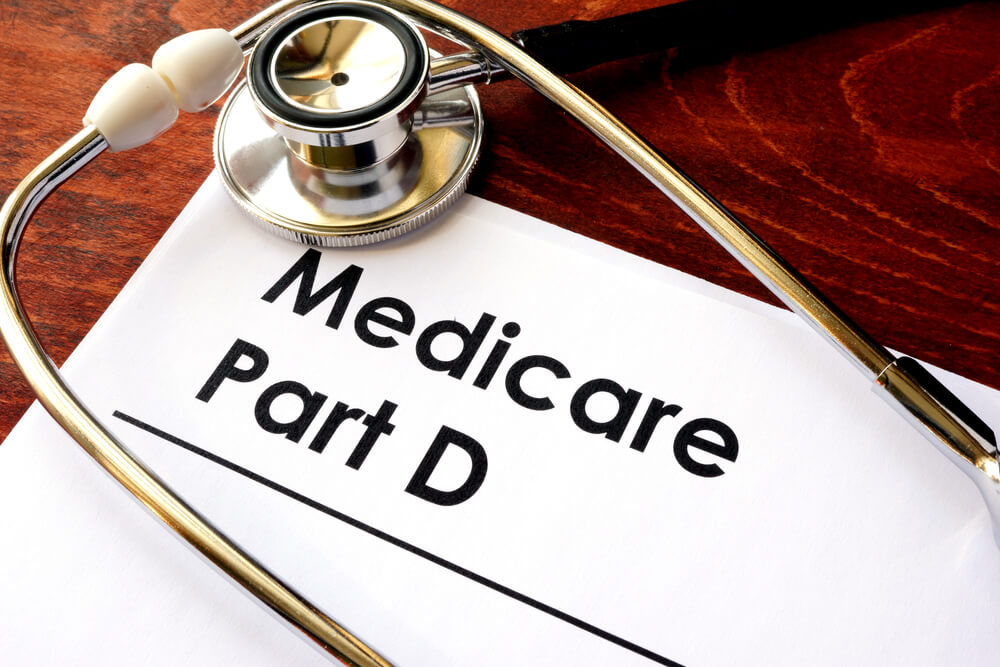This morning on Bloomberg, Republican Sen. Chuck Grassley and Democratic Sen. Ron Wyden penned an op-ed that says there is hope for a bipartisan agreement to lower the cost of prescription drugs by redesigning Medicare Part D.
One in four seniors say they can’t afford their prescriptions and 80% of Americans say prescription drug prices are too high.
Drug prices are of course a major area of concern for millions of Americans of all backgrounds from all corners of the country.
One in four seniors say they can’t afford their prescriptions and 80% of Americans say prescription drug prices are too high, and they rise each and every year.
Grassley, the Republican president pro tempore of the Senate, and Wyden, the ranking Democrat on the Senate Finance Committee, say the market isn’t working to keep drug prices affordable, so it’s time for Congress to act.
The bipartisan duo noted how the price of insulin, a 100-year-old drug that is essential in the lives of 30 million Americans with diabetes, has exploded more than 500% in the past decade.
“It’s no wonder the pharmaceutical industry has become the least popular institution in the country,” the senators wrote, noting that the government has leverage through Medicare to get these absurd prices down.
They went on to say “as leaders of the Senate Finance Committee, which has jurisdiction over Medicare, we’ve found a way to turn the conventional wisdom upside down, with legislation that would save the program more than $100 billion without cutting off anyone’s access. Indeed, our bill would increase access by lowering people’s out-of-pocket costs — all without costing taxpayers a dime.”
The Prescription Drug Pricing Reduction Act of 2019 passed the committee this past summer with a two-thirds majority, and they say it would lower beneficiaries’ premiums by $6 billion, reduce out-of-pocket costs by $25 billion and lower drug prices in the commercial market, according to the nonpartisan Congressional Budget Office.
How It Would Work
The plan would lower costs by improving Medicare Part D, which is the drug insurance program.
“In the initial phase, after a deductible, insurance companies and their pharmacy-benefit managers are responsible for 75% of the drug’s cost, while the beneficiary pays 25%,” the senators wrote. “Once a beneficiary has spent a moderate amount and reaches the so-called doughnut-hole phase — a coverage gap — the insurance plan covers only 5%, the drugmaker is required to provide a 70% discount and the patient covers 25%. Finally, for beneficiaries with very high prescription costs, there is the catastrophic phase, in which the insurer pays 15%, the patient pays 5% and the federal government picks up the remaining 80%.”
The legislation would basically simplify the structure, and beneficiaries’ out-of-pocket expenses would be capped at $3,100 a year, which would certainly be a big help to diabetics or people being treated with outrageously expensive cancer drugs.
“The legislation would also finally eliminate the Medicare doughnut hole, a policy that has caused seniors anxiety and financial stress for more than a decade,” they wrote.
The plan would make insurance companies responsible for managing costs.
“During the initial phase, which would last until the $3,100 threshold is reached, insurers would be responsible for 75% of costs. After that, they would pay 60%, the federal government would pay 20% and pharmaceutical companies would have to provide a 20% discount,” they wrote. “That would put drugmakers on the hook for their own prices.”
Another big change would limit taxpayer subsidies to drug companies so they can’t raise prices beyond the cost of inflation and just expect Medicare (taxpayers) to cover the costs. Along with the changes, the plan would maintain Part D’s free-market structure, allowing drug companies to recover some losses from R&D, which would help prevent the stifling of innovation.
“Our plan is leading the way toward a solution that can pass Congress and be signed by the president this year: It is the only comprehensive, bipartisan prescription drug legislation to have passed a congressional committee, and it has been endorsed by more than a dozen advocacy groups spanning the political spectrum, from the senior group AARP to the libertarian Cato Institute,” the wrote. “We encourage our colleagues to work with us to deliver for patients and taxpayers. Americans who can’t afford their prescription medicines are counting on Congress to act now.”
Grassley also issued support this week for a plan by House Speaker Nancy Pelosi that she says will save Medicare $345 billion over 10 years, but he said it must be bipartisan.
Editor’s note: Are you struggling to pay for your prescriptions? If so, what do you think of this bipartisan plan to lower drug costs? Share your thoughts below.




